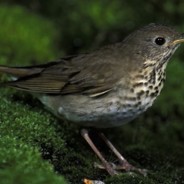Because Even the Word Obstacle is an Obstacle by Alison Luterman
I appreciate this poem for its first line: Try to love everything that gets in your way. I love that the poem is about swimming laps. Learn to be small and swim through obstacles like a minnow without grudges or memory. I think I recognize the moment this poem might spring from–getting to the pool and wanting nothing more than an empty lane, the smooth glassy surface of the water, and, then, well–obstacles. The poem is so specific about what can get in the way. For instance: the Chinese women in flowered bathing caps murmuring together in Mandarin, doing leg exercises in your lane the teenage girl idly lounging against the ladder, showing off her new tattoo: Cette vie est la mienne, This life is mine, in thick blue-black letters on her ivory instep. an uncle in the lane next to yours who is teaching his nephew how to hold his breath underwater, even though kids aren’t allowed at this hour. The poem continues. It imagines the boy grown up and on a wedding on a boat and suddenly washed overboard—but emerging like a cork from the water—alive. I appreciate the poem’s last line: So your moment of impatience must bow in service to a larger story, because if something is in your way it is going your way, the way of all beings; towards darkness, towards light. So your moment of impatience must bow in service to a larger story. As a person who struggles mightily with impatience, I appreciate the possibility of recasting my moments of impatience in a different way. Considering a larger story. Considering, in light of the poem’s title, how if I could get a glimpse of this larger story then the very words I use to interpret and name things might begin to change. An obstacle might become . . . what? Full text of the poem is at Your Daily Poem. The poem originally appeared in Sun Magazine in 2010. See also: Is Shifting One’s Point of View a Healing Habit? Photo of swimming minnow is captured from video at...
read more




